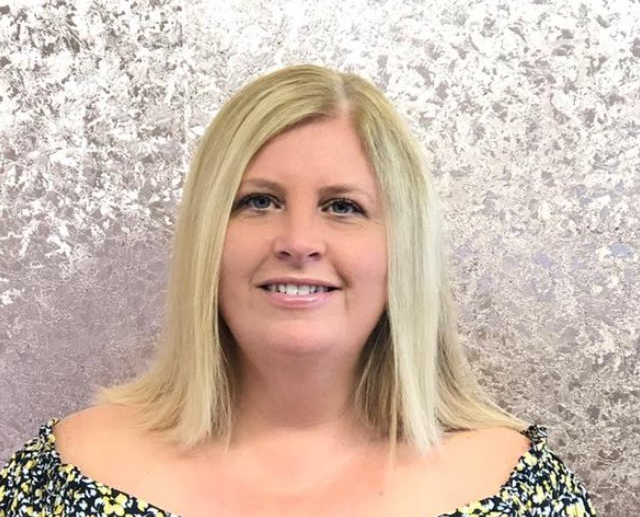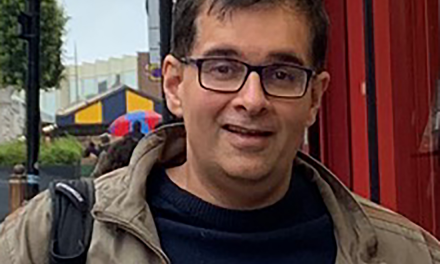Hello, today I’m with Julie Williams whose part of the Maple Mastermind Group and we’re going to be doing the Up Close & Personal interview for the Renegade Magazine so we’re going to get to know a little bit more about Julie. Who is Julie?
Julie Williams: I think at the moment a very busy working Mum. I’ve just left a corporate life to follow my own dreams and start my own business which has been quite nice.
Andy Stace: It’s good to see and nice to watch your progress. So, what do you do exactly Julie?
JW: In my working career I have a business that I’ve been running for 12 years where I sell children’s books, which has always been my passion. Accountancy has been my profession; however, I’d say that I’m more of a business consultant and trouble shooter than a general accountant in that almost all of my career has been about solving problems, getting people out of difficulties and all sorts of different kinds of things actually. So, I’ve had lots of past experience and I think what I do is very diversified and really enjoyable.
AS: Good stuff! So, where are you from Julie?
JW: I’m from the Rhondda Valleys originally. I moved to Cardiff when I was 21 years old, quite some time ago now. I then moved to Miskin, which is a little rural village in between Cardiff and my home town and actually the location is brilliant as it’s 2 minutes off the M4. I like living there, it’s great place to live.
AS: So, do you have a partner or a husband?
JW: I have a partner. I was divorced about 7 years ago. A very amicable divorce, we get on really well and we’re both very good parents, which is great. We don’t have any issues. There were no solicitors involved so it was quite simple. I have a new partner of four and a half years and his name is Lee. He doesn’t tend to understand the business side of things because he’s an engineer and a motor technician but he’s very supportive.
AS: I know it’s not polite to ask a lady her age but roughly how many years have you been floating around on this planet?
JW: I’m a year and a little bit off fifty.
AS: Really! You don’t look it.
JW: Thank you.
AS: You look great. So, what inspired you to run your own business then?
JW: I think that for years I’ve been freelancing as an accountant and helping people out and then I was poached into the corporate banking world 2 years. It was a great decision because it took me out of the position I was in at that time where I wasn’t particularly happy and felt undervalued. In the corporate world, the banking industry wasn’t for me in the fact that I didn’t make the decisions and I couldn’t make a difference and help the companies I wanted to help. So, it was always a case of. . . let’s go back and do something that you’re good at. My feeling was, that for 45 years I’d worked for somebody else, why not do it for yourself. I’d always enjoyed my other business and that’s worked quite well alongside employment, so I just thought I’d give it a go and do it for myself. And so far, so good.
AS: So, during those 2 years, what was the biggest thing you learnt? Even though you didn’t enjoy the job, what did you take away?
JW: The biggest thing I learnt. . . I learnt a lot of new skills. Obviously, it was a brand-new career, accountancy and banking is completely different. People think they’re related but they’re not. Bankers are not taught to do what an accountant does, and banking is quite restricted. So what I found was, I looked after a portfolio of about 150 plus customers and I learnt that the customers are absolutely amazing and as an accountant and a business consultant, you can help them but in relation to a bank, because it’s a huge, huge monster you’re governed by facts and figures, you don’t see the whole picture of the actual customer. . . . How long they’ve been in business, how much money they have in the bank now, what sectors, their trends. I’m not saying that these figures and facts aren’t important but sometimes you have to see that business is a rollercoaster, so as an accountant and a business consultant I understand that but as banker, they don’t understand that. And I felt that I learnt an awful lot about the industry and the fact that it’s a very, very tough industry. It’s very, very competitive in relation to the banking as well but it wasn’t for me. I liked the job but after almost a 10-hour day, I never felt an achievement. I never felt, oh that’s great, it was almost the feeling of, it’s great to get it off your desk. Where it’s completely different when you actually help somebody, whether they have a cashflow issue, or whether they’re looking for growth or whether they’re looking to sell their business, you have a completely different gratification almost of doing that than you do from a bank.
AS: Sounds very clinical and very impersonal.
JW: It is, very, very impersonal.
AS: Based on numbers and ratios, so it doesn’t actually take the personality of the business owner into account.
JW: No, it doesn’t at all, and this is the issue, as I said, with a 150 plus customers in my portfolio, that was without the people I was covering, there are some really, really good people out there who care about their business. You just have to understand that it’s a rollercoaster. So, as an accountant and coming from industry, I was almost over servicing these people because it certainly wasn’t in the rule of what the bank wanted, they really only want you to tick boxes almost. You need to see 6 maybe 8 clients a week, well if you’re going to spend time with clients and understand their problems, that’s sometimes impossible.
AS: So, taking what you’ve learned from the bank, how’s that motivated you on a day to day basis with your new business?
JW: It’s motivated me hugely into helping businesses more. I’ve always known, that businesses struggle, particularly business owners. Whether they’ve come into the business through hierarchy or whether they’ve come in through entrepreneurship, what they find is, that very often they’re so wrapped up with the operations of the business that they forget about the business side, looking after the HMRC and accounting and all different things like that. They don’t take them into consideration, and I’ve found that I’ve seen it more, even though I’ve always been exposed to it, because this is what I’ve always done, going and looking after so many more customers within a banking field I’ve seen that it’s almost the norm. I’d say that 90% of customers are brilliant at the operations side but the actual running of the business, they almost need a little business avatar to help them so that they can concentrate of day to day activities.
AS: That’s great, but what does success mean to you? What’s your vision for your business?
JW: My vision has been to make a difference, but personally I’d like fulfilment. Financial freedom is on the backbone of it but it’s fulfilment for me. In the fact that if I’ve actually helped companies grow and helped people sell their businesses for a lot more money than they would have done or helped people to get over those difficult times in relation to turn around. I discussed with you earlier about a business that is really struggling at the moment and I’m literally on the grasp of trying to salvage it. To me, if I do salvage that business, that’s almost like, “come on let’s go out and have a bottle of Verve”, just to celebrate, because I’ve helped that business get through those really difficult times, so the more of them I can do, it’s almost like the vision of bringing people on to help them do the same as me. I want lots of mini me’s to be able to help and make a difference.
You can listen to the rest of this interview by logging into your travectio account and going to the Resources/Audio tab.




